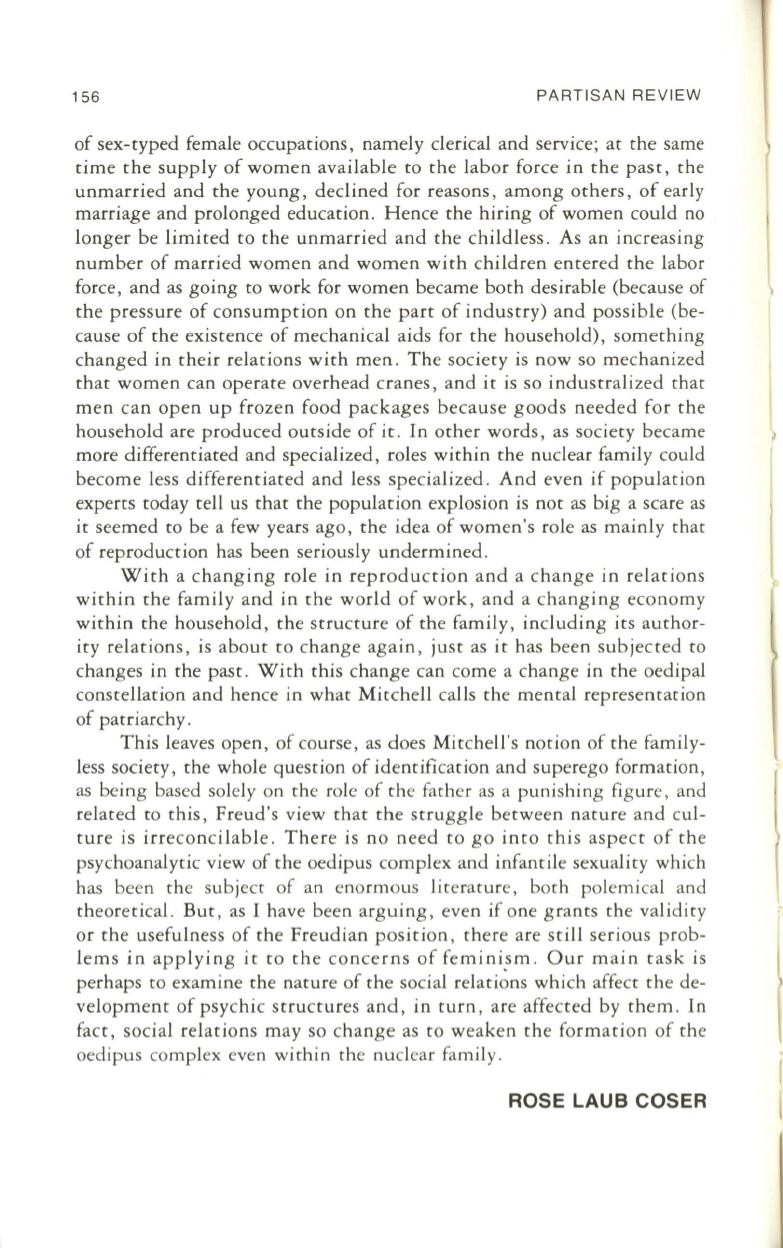
156
PARTISAN REVIEW
of sex-typed female occupations, namely clerical and service; at the same
time the supply of women available to the labor force in the past, the
unmarried and the young, declined for reasons, among others, of early
marriage and prolonged education. Hence the hiring of women could no
longer be limited to the unmarried and the childless. As an increasing
number of married women and women with children entered the labor
force, and as going to work for women became both desirable (because of
the pressure of consumption on the part of industry) and possible (be–
cause of the existence of mechanical aids for the household), something
changed in their relations with men . The society is now so mechanized
that women can operate overhead cranes, and it is so industralized that
men can open up frozen food packages because goods needed for the
household are produced outside of it. In other words, as society became
more differentiated and specialized, roles within the nuclear family could
become less differentiated and less specialized . And even if population
experts today tell us that the population explosion is not as big a scare as
it seemed
to
be a few years ago, the idea of women 's role as mainly that
of reproduction has been seriously undermined .
With a changing role in reproduction and a change in relations
within the family and in the world of work, and a changing economy
within the household, the structure of the family, including its author–
ity relations, is about to change again, just as it has been subjected
to
changes in the past. With this change can come a change in the oedipal
constellation and hence in what Mitchell calls the mental representation
of patriarchy .
This leaves open, of course, as does Mitchell's notion of the family–
less society, the whole question of identification and superego formation,
as being based solely on the role of the father as a punishing figure, and
related to this, Freud's view that the struggle between nature and cul–
ture is irreconcilable. There is no need to go into this aspect of the
psychoanalytic view of the oedipus complex and infantile sexuality which
has been the subject of an enormous literature, both polemical and
theoretical. But , as I have been arguing, even if one grants the validity
or the usefulness of the Freudian position, there are still serious prob–
lems in applying it to the concerns of feminism. Our main task is
perhaps
to
examine the nature of the social
relati~ns
which affect the de–
velopment of psychic structures and, in turn, are affected by them . In
fact, social relations may so change as to weaken the formation of the
oedipus complex even within the nuclear family.
ROSE LAUB COSER


